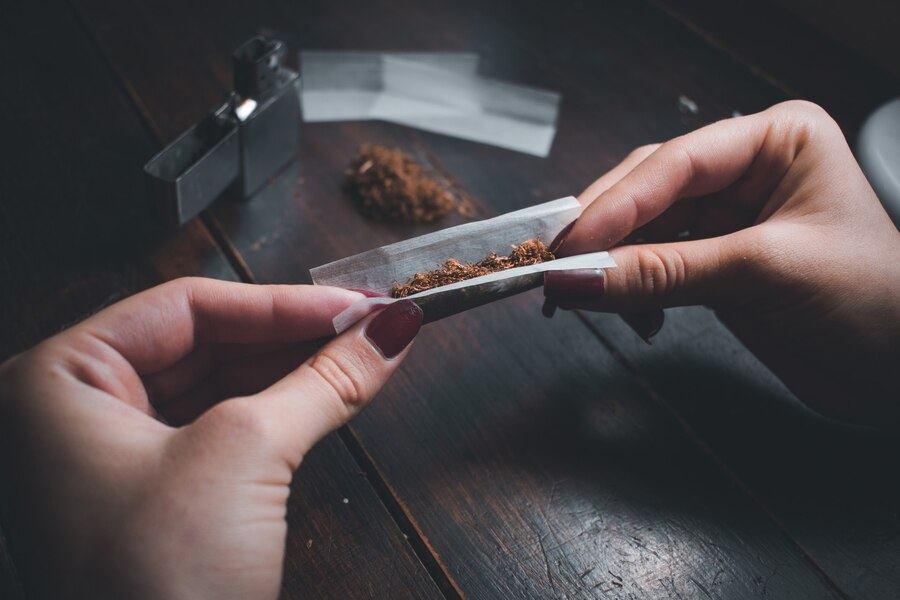Sober Living For Marijuana Addiction At Archway Recovery
The issue of sober living for marijuana addiction appears to be increasing, and this herb, although seemingly innocent as compared to other drugs, can have debilitating consequences on someone’s mind, body, or emotions. However, if one were to investigate deeper into it, one would find that marijuana is indeed a habit-forming drug, contrary to what many people think. Fortunately, Sober Living for Marijuana Addiction programs provide the required framework and assistance to overcome dependency. The recovery home serves as an example of a reputable facility where a sober community is able to help people regain their lives by building strong bases for lasting recovery through compassion.
Understanding Marijuana Addiction
Marijuana, popularly known as cannabis, is generally perceived to be a soft or recreational drug. Its excessive and long-term use has been known to result in dependence and addiction, especially when it serves as an escape route from being stressed or anxious or as a way out of other emotional problems. Addiction results in behavioral, emotional, and psychological manifestations. People may find over time that they have to use larger doses of marijuana to get the same buzz or continue to use the drug despite it creating problems in their daily lives.
Sober Living for Marijuana Addiction provides highly structured facilities offering support to recovering individuals in staying sober. The house is an important transitional step from rehabilitation programs into eventual complete reintegration with normal daily living for those who have a marijuana addiction.
The Importance of Sober Living for Marijuana Addiction
A sober living environment is not just a place to reside while recovering from substance use. Still, it is about being part of a supportive community that fosters accountability and responsibility in order to develop healthier life patterns. For those who have recovered from marijuana addiction, sober living homes mean a chance to rebuild a life free from substances.
Of the many challenges to overcome from marijuana addiction, there is a psychological addiction that may arise. Sober living offers individuals a break from patterns of reliance by removing triggers and temptations. Such an enabling environment facilitates personal growth, healing, and the establishment of healthier coping mechanisms.
Sober Living Homes: How They Work
Sober living homes most often live by the aid of rules and regulations that enable them to maintain a structured, supportive, and safe environment. These homes are not formal rehabilitation programs but rather transitional steps for those individuals who have finished detox or other forms of treatment and who feel ready to resume daily life without using the crutch called marijuana or any other substance.
In sober living houses like Archway Recovery, residents are expected to interact with the community, attend meetings, and keep working or going to school. The peer support system ensures accountability among peers so they have all the resources and encouragement not to go back to old states.

Why Choose Sober Living for Marijuana Addiction?
Although some people attempt to quit marijuana usage independently, this can more often than not lead back to old behaviors, especially if there is no supportive structure in place. Sober living homes are designed to help the individual adapt to life without substances gradually in a structured environment that reduces the triggers toward relapse. They offer:
- Accountability: Residents are required to follow the rules of the house, attend meetings, and be subject to random drug testing. It is this type of structure that keeps residents focused on their recovery.
- Supportive Community: A sober living environment creates a sense among the residents that they are all in it together and builds relationships through shared experiences and helping one another through difficult times. With marijuana addiction, this community aspect is huge, as so many people feel isolated in their struggle.
- Healthy Behaviors: Sober living houses teach residents healthy behaviors in the form of regular physical exercise, mindfulness practices, and productive activities filled with healthier routines that work to replace the unhealthy behaviors associated with marijuana use.
- Professional Support: Both the staff and the management at Archway Recovery have lived the path of sober living for marijuana addiction. This personal experience gives them an opportunity to show empathy and understanding and provide guidance while giving residents the professional support they need in recovery.
The Role of Archway Recovery in Sober Living
Archway Recovery provides a haven and a sober living facility for men with compassion and empathy. The facility truly understands the unique challenges that accompany addiction, particularly dependency on marijuana. At recovery homes, residents find themselves surrounded not only by the support of the staff members but also by their fellow residents who are facing or have gone through similar experiences.
Core to the treatment concept at the recovery home is the understanding that recovery is a jointly shared journey. The supportive environment encourages collaboration wherein the residents lift one another and share experiences that strengthen their resolve. Community-based recovery focus helps such individuals to easily connect and establish a sense of belonging that, in most cases, is usually lost during active addiction.
Archway Recovery leadership is composed of men who have also walked the same path in recovery. Lived experience creates an even deeper level of empathy and understanding that a resident may feel at ease and safer during recovery. Treatment at recovery home is aimed at more than just quitting the use of marijuana, but at how to live a life where sobriety can be maintained and fulfilling.
Relapse Prevention in Sober Living Homes
One of the strong emphases that sober living houses place on recovery is relapse prevention. This is because one can hardly get over an addiction to marijuana due to a number of psychological holds a drug can place upon a person, often leading to sliding back into using phenomenon termed as relapse in professional terms. However, structured and supportive sober living can greatly minimize this possibility.
- Preventing Relapse: A sober living home equips the resident for relapse prevention with tools such as:
- Counseling and Therapy: Many sober living homes make available therapists or counselors who can help individuals work through the emotional and psychological triggers of their addiction.
- Peer Support Groups: Sharing experiences and successes and discussing challenges provides encouragement and accountability.
- Routine and Structure: Keeping a regular daily schedule will keep individuals less overwhelmed or tempted to use marijuana.
Many sober living homes have programs for residents to develop basic life skills, financial management, or job readiness skills that can be a significant reinforcement to long-term recovery.

Marinating a Lifestyle Free of Marijuana Addiction
Recovery is not about stopping the use of marijuana; it is a different way of life altogether. Living facilities in sober homes, like Archway Recovery, help an individual reset the bar with regard to what he considers self-worth and personal potential. By offering a safe and structured environment, one is able to clearly focus on personal growth, career development, and emotional healing.
While marijuana addiction may not hold the stigma that other substance dependencies do, they are equally debilitating. Sober living provides a safe place where residents can explore the root causes of their addiction and find out how to live a purposeful life without substances.
Sober living for marijuana addiction fills an important transitional function in the overall recovery process. Facilitated by places such as recovery homes, sober living has a structured environment that allows peer support and accountability, ensuring residents remain sober while working towards permanent personal growth. Recovery from marijuana addiction can be quite long and arduous; once supported through good therapy, individuals are empowered to overcome their addiction and rebuild their lives.
Shared recovery and compassionate care are guiding principles in empowering men at recovery homes to rediscover their life’s purpose and to live sober. With the guidance of people who understand what it’s like to lead a sober life with a community of like-minded people, lasting change is not just an idea; it is real.


